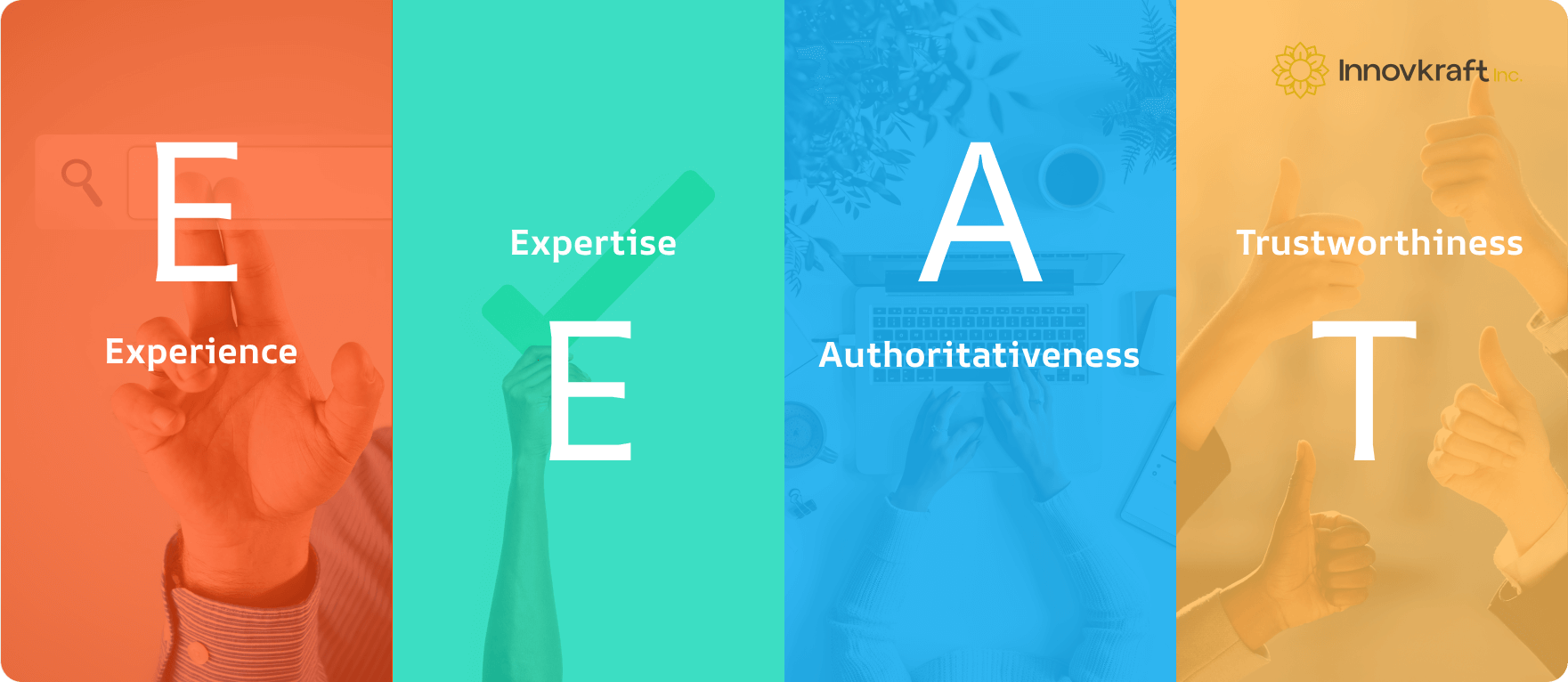

It’s hard to comment on what has changed since Google’s inclusion of Experience into the 2014 coinage of its E-A-T framework. But most of us would know by now that E-E-A-T (Experience, Expertise, Authoritativeness, & Trustworthiness) is here to enhance the quality of content available on the web.
While Google is still one of the most widely used search engines across the world, if not the single most, the dependency on Google for credible and accurate information is undeniable. Each day millions of users explore Google’s search engine to find answers to their queries. Sometimes they need answers for a medical query, or a complication related to law or for a general view of how the world opines on a certain matter; Google answers them all. The reason there is so much talk about E-E-A-T is because people rely on Google to find answers to some of their critical life questions, and with the increasing number and nature of searches, Google had to find a way.
E-E-A-T was established by Google as a guideline that would evaluate the impact and credibility of the content. Google does this through its Search Quality Rater Guidelines which is a metric where users rate the content for its quality and impact. With this, the perception of how to approach SEO is also set to witness a huge change. With the increase in good quality content, the onus is on SEO teams to drive an effective strategy for better visibility and ranking. In a way Google’s E-E-A-T framework will set the bar for content creators. Organizations who have their presence on the web will need to churn in quality content each time as the end goal is set; to deliver trustworthy and accurate content to the users.


The word is honesty. Trust builds through it. So, make sure your content has no blemishes when it comes to ethics and transparency. In a profit mongering era why not differentiate yourself by avoiding deception or any information that misleads the user.

The gold standard to build the trust of users is by incorporating E-E-A-T principles into your SEO strategy. Focus on building trust by consistently delivering content with expertise, experience, and authority. Create backlinks, bring in expertise and demonstrate transparency and honesty, traction will take care of itself.
The key to achieving digital marketing success lies in partnering with Innovkraft,one of the best seo company in bangalore,where we leverage our expertise and authority to enhance your brand’s visibility and build trust through transparent and effective SEO strategies.
More to Explore